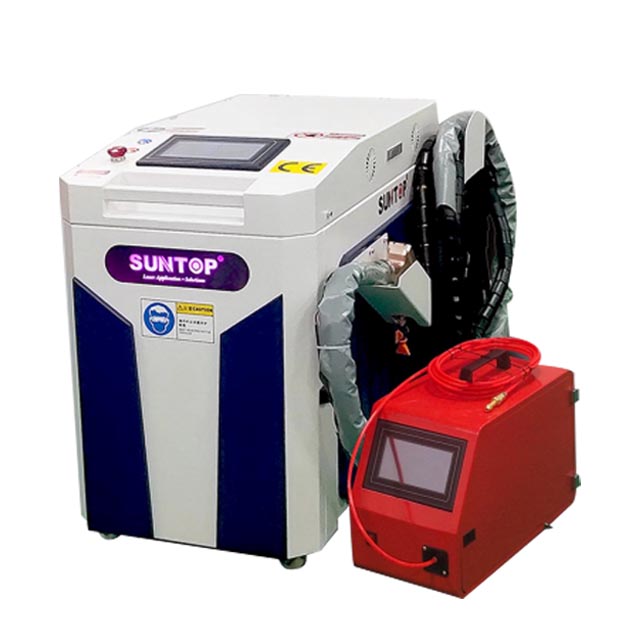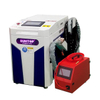|
Laser sources
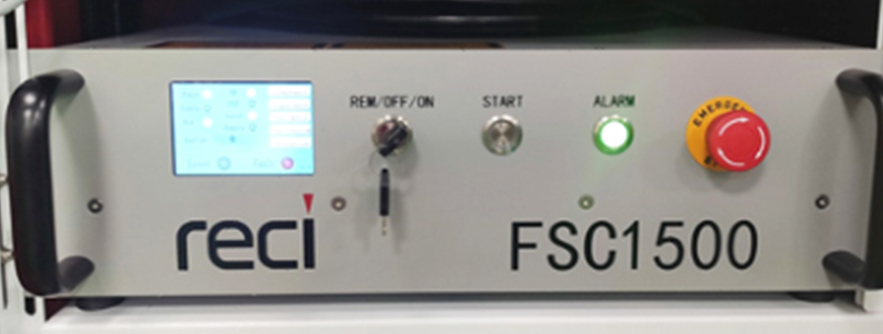
Features
- Customized 45um core diameter welding version fiber laser with a service life of 100,000 hours.
- No maintenance required, can weld all types of metals.
- It has the advantages of compactness, easy integration and high energy efficiency, and is suitable for high-precision, high-speed laser welding tasks.
|
Self-developed Wobble Welding Head
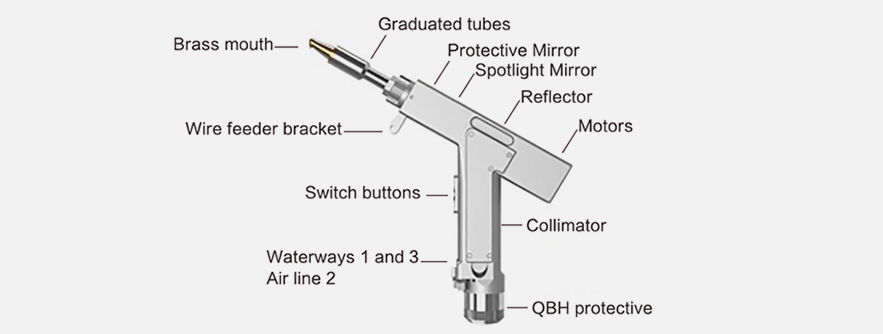
Features:
- Self-developed control system and structural design, to adapt to a variety of welding needs within 3000W, set up a number of safety alarms and status indicators, the abnormal state of instantaneous response.
- Weighing only 0.7kg, it is compact and ergonomically designed, flexible operation, easy to use.
- Visualize all parameters and monitor the status of the entire machine in real-time to prevent issues, facilitate troubleshooting, ensure stable system operation.
- All process parameters can be set and various process effects can be tested flexibly.
|
User-Friendly of Operation Interface
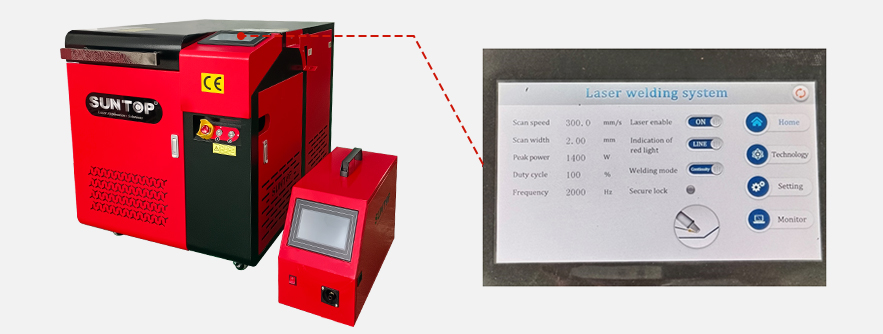
Features:
- Advanced resistive touch screen with higher sensitivity, intelligent control.
- Multi-language intelligent control panel, flexible adjustment of welding parameters, multi-group library of welding parameters and cumulative timing of light output etc.
- Support multiple languages (English, Spanish, German, Italian, French, Russian, Turkish, etc.)
|
Auto Welding Wire Feeder System (single/double feeder optional)
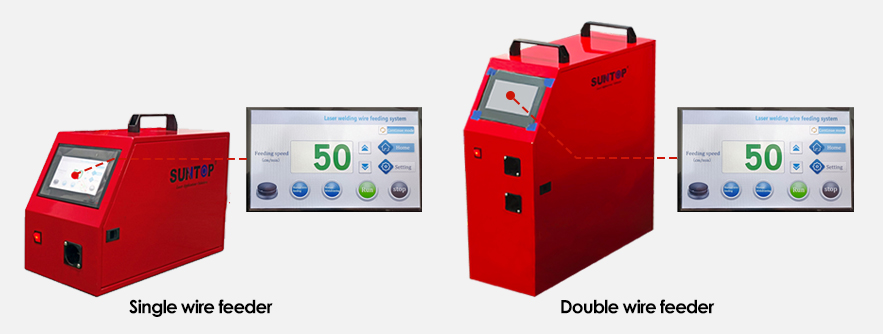
Features:
- Depending on the specific welding needs, the double wire feed can increase the width of the weld seam up to 8 mm, allowing for a high stacking effect on thicker sheet metal.
- Touch screen design, automatic wire filler, and fully digital design support stainless steel and aluminum wires with diameters of 0.8mm, 1.0mm, 1.2mm, 1.6mm, and 2.0mm.
- 220V power supply drive provides more powerful wire feeding, preventing wire jamming and resulting in more consistent welding quality.
|
Operator Safety Features
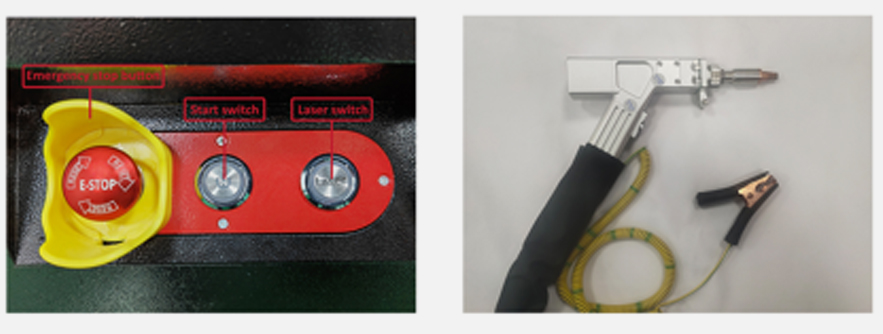
Features:
ST-FW1500H/2000H/3000H is a Class IV laser system and routine precautions are required for the safe operation of the equipment.
Built-in features include:
- Key switch control of the laser source and an Emergency-stop button for deliberate operation.
- Fiber laser interlock to verify the integrity of laser delivery to the welding gun.
- Laser weld gun trigger for intentional operation.
- Part contact electrical interlock that turns off the laser power if the welding head is not in contact with the welded parts.
|
Cooling System
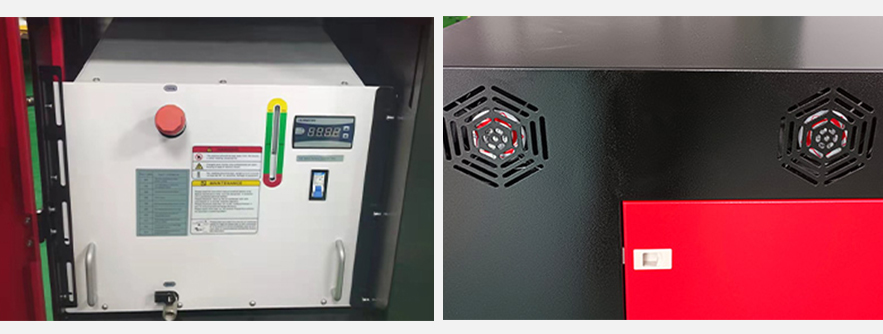
Features:
-Industrial chiller
Ensures heat dissipation of core optical path components, dual-circulation water cooling, better cooling of laser source and welding head.
-Cooling fan and temperature sensor
Add cooling fan and temperature sensor, when the temperature reaches the set temperature, the cooling fan will automatically turn on.



